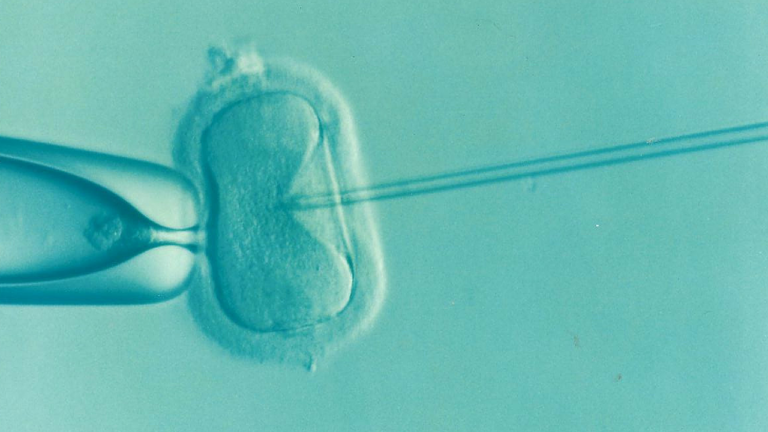Typically, doctors recommend couples abstain from sexual intercourse before and after an embryo transfer. This is because the uterus needs optimal time to prepare for implantation.
However, this advice can feel restrictive and may not be enjoyable for couples. What are the risks and benefits of sex during IVF treatment?
What is IVF?
IVF is an assisted reproductive treatment that involves fertilizing an egg with sperm outside the uterus, in a laboratory setting. The fertilized embryo is then implanted in the uterus, where it will hopefully develop into a healthy baby. IVF can be a long, complicated process that is both physically and emotionally exhausting. Many couples find that their relationships are tested as they go through fertility treatments. The need to constantly check ovulation, avoid sex when it’s time, and then have hopes dashed by negative pregnancy tests can be difficult on even the most committed couples.
While most of the time sex is safe during IVF, there are some times when it should be avoided for the sake of the patient’s health and the success of their treatment. Your fertility specialist will let you know when sex is not a good idea. For example, it is best to avoid sex during the ovarian stimulation phase. This is because hyperstimulation of the ovaries can make intercourse painful.
Your doctor may also recommend that you abstain from sex right after an IVF transfer, and for the entire two week waiting period. This is because the implantation process is sensitive and could be hindered by sexual activity. This is a good time to try alternative ways of maintaining intimacy and connection with your partner, such as cuddling or massages.
Embryo transfer
In the lab, we combine eggs with sperm to create embryos. The embryos are then transferred into the uterus, where pregnancy occurs. In some cases, our fertility doctors will prescribe hormone medications after an embryo transfer to help the lining of the uterus grow quickly and thicken. You should wait for a full two weeks after the transfer before taking a home pregnancy test. This allows the hCG (human chorionic gonadotropin) levels to stabilize, so you can get accurate results from your test.
After egg retrieval, our lab attempts to fertilize all the mature eggs using intracytoplasmic sperm injection (ICSI). However, most of the time, only about 70% of the eggs become fertilized.
During an embryo transfer, the fertility doctor uses a thin catheter to pass through the cervix under ultrasound guidance. This is a fairly painless procedure, which lasts about 30 minutes. During this time, you can lie back and rest.
During a fresh embryo transfer, the doctor will transfer an average of five resulting fertilized eggs into the uterus. The embryos are usually at the 2-8 cell stage. In some cases, the patient will choose to have a single embryo transferred. If this is the case, we will allow the blastocyst to develop to the day 5 or 6 stage before transferring it into the uterus. This reduces the chances of a multiple pregnancy, which can lead to complications such as high blood pressure and gestational diabetes.
Ovulation
Ovulation happens each month in the middle of your 28-day menstrual cycle, on average around day 14. It’s when a mature egg is released from one of your ovaries and travels down a fallopian tube to be fertilized by sperm.
Your fertility doctors monitor your ovaries and uterus using ultrasounds and blood hormone levels during your IVF treatment. The drugs you’re taking to stimulate the ovaries can cause an overproduction of estrogen, which leads to the development of multiple follicles that contain eggs. The healthcare professionals use ultrasounds to measure the growth of these follicles and determine which ones have reached their maximum size. Follicles that are larger than 14 millimeters are more likely to have a healthy, mature egg inside them.
Women are most fertile in the days leading up to ovulation and on the day of ovulation itself. These are called the ‘fertility window’ and offer the best opportunity for conceiving. Outside the window, sperm have a lower chance of fertilizing an egg, and the body reabsorbs any that don’t reach it.
Some ovulation symptoms include an increase in libido and cervical mucus changes. The mucus becomes stretchy, clear and looks like egg white, which helps sperm swim to the egg that’s released during ovulation. This is a good time to have sex, but almost anything can affect your libido, so you don’t need to rely on this as a way to predict your ovulation.
Sex during IVF
For many couples who are trying to conceive naturally, the process of having sex on a schedule, taking temperatures and ovulation tests, hoping for a positive pregnancy test, and then sometimes despairing when a negative result is returned month after month can take a toll on their relationship. Then comes fertility treatment, and some doctors advise that couples refrain from intimacy during the IVF process, claiming that it could prevent them from becoming pregnant or harm the embryo.
However, Madeira and Smith are among those who believe that this is not true. They say that the ovarian stimulation phase of IVF, when women’s ovaries can go from walnuts to grapefruit sizes, is an especially dangerous time for sexual activity. In addition, the medications used during this period can interfere with libido, vaginal lubrication and pH balance, making it more difficult to have sex comfortably.
It’s also important to note that any sperm retrieval is done before the embryo transfer window, and men are advised not to have unprotected sex during this period to ensure that the best seminal sample can be collected. Those who are working with surrogates or egg donors should also follow clinical guidelines to help make the process as successful as possible.
See Also:


